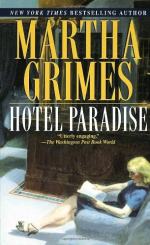|
This section contains 337 words (approx. 2 pages at 300 words per page) |

|
1. Toward the end of the novel, Emma determines to return to the Devereau house by herself; "What was in my mind," she says, "was a hazy notion that this time I should go alone." Psychologically and symbolically, why is it important that Emma undertake this potentially dangerous journey without a companion?
2. Emma rarely complains overtly about her lot in life. But when she observes a dress in Mary-Evelyn's closet, she notes that "It was the kind of dress I might have had if anyone had ever bothered about my clothes." What does this comment—and the host of similar ones in the novel—tell us about Emma's status within her family?
3. Since the days of Plato, unity—the idea that each part of a literary work should be related to every other part—has most often been considered a virtue...
|
This section contains 337 words (approx. 2 pages at 300 words per page) |

|




